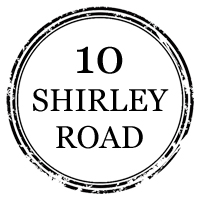The Equity and Inclusion Policy was adopted by the Council on 6 March 2024.
https://ccc.govt.nz/assets/Documents/The-Council/Plans-Strategies-Policies-Bylaws/Policies/Strengthening-communities/Equity-Inclusion-Policy-Adopted-6-March-2024.pdf
The Equity and Inclusion Policy describes our approach to enabling people from all communities and all areas of the city to have equitable access to our services.
It recognises the Council’s responsibility to ensure that decision-making reflects its commitment to fostering equity and inclusion for all Christchurch and Banks Peninsula residents.
The Council values the skills and strengths that all residents bring to our city and recognises that some of our residents may face disproportionate disadvantages in accessing Council services. The purpose of the policy is to ensure that equity and inclusion are embedded into everything we do.
The policy is intended to:
– Inform Council decision-making and investment, including grant funding and procurement.
– Apply an equity, access and inclusion lens over all Council services.
https://ccc.govt.nz/the-council/plans-strategies-policies-and-bylaws/policies/strengthening-communities-policies/equity-and-inclusion-policy
– Equity
Equality means each individual or group of people is given the same resources or opportunities. Equity recognises that each person has different circumstances and allocates the exact resources and opportunities needed to reach an equal outcome.
People should have equity, regardless of age, gender, disability, ethnicity, culture, faiths, geographical location, sexual orientation, neurodiversity or socio-economic status.
– Inclusion
The practice or policy of providing equitable access to opportunities and resources for people who might otherwise be excluded or marginalised, such as those who have physical, hidden, or mental disabilities and members of other minority and disadvantaged groups.
– Accessibility
People have equitable access to the physical environment, information, communication, participation and Council services.
– Hearing Panel’s report to the Council on the proposed Equity and Inclusion Policy
https://christchurch.infocouncil.biz/Open/2024/03/CNCL_20240306_AGN_8483_AT.htm#PDF2_ReportName_43180
– Panel’s questions and Officers’ responses
https://christchurch.infocouncil.biz/Open/2024/03/CNCL_20240306_AGN_8483_AT.htm#PDF3_Attachment_43180_4
– Panel’s recommended changes to draft Equity and Inclusion Policy
https://christchurch.infocouncil.biz/Open/2024/03/CNCL_20240306_AGN_8483_AT.htm#PDF3_Attachment_43180_5
My thanks to the Hearing Panel for including ‘neurodiversity’ in this policy.
Since then I’ve read “Notes for Neuro Navigators” by Jolene Stockman.
https://christchurch.bibliocommons.com/v2/record/S37C1425062
“Neurodiversity is a biological characteristic of human beings. Coined by Judy Singer [in 1998], it describes the diversity of brain function across all people. Neurodiversity includes being neurotypical.” Page 138
“Neurodiversity is some people running on Linux, other people on Windows, some on Mac, others using a combination of systems, and still others programming completely new systems from scratch. We are all neurodiverse.” Page 23
“Neurodiversity is biological, natural, and more than that: valuable. Harnessing the skills and energy of neurodiversity is the key to innovation, to greater empathy and understanding. Understanding neurodiversity is key to the new world.” Page 24
Hearings Panel Recommendations:
– 4. Prioritises an assessment of public Community Board and Council meeting rooms and processes to identify barriers to inclusion and participation, and reports to the Council by 30 June 2024 with recommendations.
– 5. Notes the concerns raised in submissions around engagement and access to Council information and considers whether additional budget is needed in the Long Term Plan to enable participation.
https://christchurch.infocouncil.biz/Open/2024/03/CNCL_20240306_MIN_8483_AT.htm#PDF2_ReportName_43180
Re: Recommendation 4.
I would have also included ‘Christchurch City Libraries’ in this assessment.
I am currently researching/developing a ‘Designing for Differences’ Framework/Audit Tool, that could be used in the initial planning/development stages of every new Civic building/facility (libraries, community hubs, playgrounds, swimming pools) & as an audit/assessment tool when redeveloping existing Civic building/facility.
Similar to the ‘Youth Audit Tool’, but with more detailed specifications/observations/accommodations for differences:
– Architectural Design, Environmental Design, Landscape Design, Biophilic Design, Cultural Design, Universal Design
– Interior Design, Colour Scheme, Lighting, Heating, Ventilation, Acoustics, Furniture, Fixtures, Furnishings
– Spatial Design, Layout, Zones (Entrance/Exit, Transition, Landing, Activity & Observation), Wayfinding & Signage
Re: Recommendation 5.
Residents in the Innes Ward don’t have a suburban library to ‘access Council information’ & engage with staff/elected members to make their submission.
While residents in the Central Ward have access to Tūranga, there is no free car parking available (free car parking is available at all our suburban libraries).
Below I’ve included parts of my written submission for the CCC Draft Equity and Inclusion Policy:
https://www.10shirleyroad.org.nz/wp-content/uploads/2024/04/CCCHaveYourSayDraftEquityandInclusion2023JoannaGould.pdf
This draft ‘Equity and Inclusion’ Policy is one of the most important for Council, as how this policy is implemented in practical ways, will affect every Christchurch resident & visitor experience in Christchurch.
How this policy is implemented in real life, doesn’t just affected an individual, it also affects their parents/caregivers, immediate/extended family & community.
It’s not just about ‘reducing barriers’ and ‘enabling participation’, this policy could be the difference between residents/visitors feeling socially connected or social isolation, especially for someone with ‘visible’ or ‘hidden’ differences.
There are two key areas for this Christchurch City Council Draft Equity and Inclusion Policy are: Environments & Information.
– 1. Environments (Christchurch City Council Building, Libraries, Community Boards, Community Facilities & Community Events)
– 2. Information (Christchurch City Council Building, Libraries, Website, Social Media, Consultations, Community Boards, Community Facilities & Community Events)
Residents need better access to local civic inclusive accessible ‘safe’ spaces, information & resources in their local communities: Community Education & Support Services in Learning Libraries.
Every Ward should have a ‘suburban’ sized Christchurch City Library.
Q. How does the Christchurch City Council provide information in a way that is inclusive & accessible to all residents/visitors?
A. By thinking like a resident/visitor.
– What information does each group need?
– How do they need it provided to them?
– Is information: written, verbal, visual, graphics, photos, video, interactive, maps, virtual tours?
– If they have a ‘visible or hidden’ difference are we making it as simple & easy for them to process the information?
Further information covered in my .pdf:
– 1. Christchurch City Council | Building
– 2. Christchurch City Council | Libraries
– 3. Christchurch City Council | Website
– 4. Christchurch City Council | Social Media
– 5. Christchurch City Council | Consultations
– 6. Christchurch City Council | Community Boards
– 7. Christchurch City Council | Community Facilities
– 8. Christchurch City Council | Community Events
